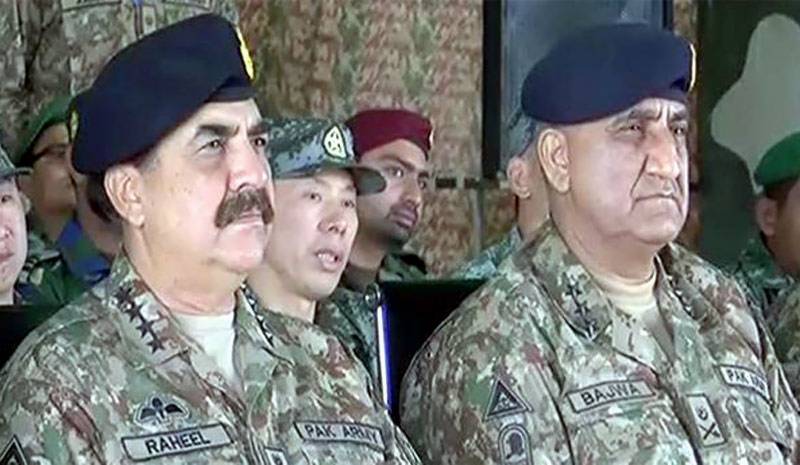-
Tips for becoming a good boxer - November 6, 2020
-
7 expert tips for making your hens night a memorable one - November 6, 2020
-
5 reasons to host your Christmas party on a cruise boat - November 6, 2020
-
What to do when you’re charged with a crime - November 6, 2020
-
Should you get one or multiple dogs? Here’s all you need to know - November 3, 2020
-
A Guide: How to Build Your Very Own Magic Mirror - February 14, 2019
-
Our Top Inspirational Baseball Stars - November 24, 2018
-
Five Tech Tools That Will Help You Turn Your Blog into a Business - November 24, 2018
-
How to Indulge on Vacation without Expanding Your Waist - November 9, 2018
-
5 Strategies for Businesses to Appeal to Today’s Increasingly Mobile-Crazed Customers - November 9, 2018
Profile of the new COAS of Pakistan ‘General Qamar Javed Bajwa’
Appointment of Qamar Javed Bajwa as new chief of Pakistan’s army seems to have evoked fear and alarms in the neighbouring country, India as former Indian army chief Bikram Singh on Saturday said India should be careful with respect to Bajwa’s approach.
Advertisement
The appointment of General Qamar Javed Bajwa has been formally decided by Pakistan Prime Minister Nawaz Sharif as Raheel Sharif’s tenure as the head of Pakistani Army ended this month.
“After promotion, General Zubair Mahmood Hayat has been appointed as Chairman Joint Chiefs of Staff Committee and General Qamar Javed Bajwa has been appointed as Chief of the Army Staff”, said a press release from the Prime Minister’s Office.
Prior to his elevation, Bajwa served at the Pakistani Army General Headquarters as Inspector General of Training and Evaluation. “The legacy of General Raheel Sharif would continue in the light of the examples he set”, Asif added.
“He is extremely professional, but very easy-going and full of compassion”, an officer who had served under him said.
Bajwa was the general officer in command (GoC) of X Corps, Rawalpindi, the army’s largest, which is responsible for the area along the so-called Line of Control (LoC), the de facto border dividing Indian and Pakistani-administered areas, has extensive experience in handling affairs in Kashmir and the northern areas.
Though security across Pakistan has vastly improved under General Sharif, with number of reported “terrorist” attacks down, Bajwa will face vast challenges at home and overseas. The Army has recommended three more people for leading the country’s ground troops that have a strength of 5,50,000 soldiers.
Senate Chairman Raza Rabbani, speaking at a seminar Thursday, declared that civil-military relations are still the “biggest challenge to democracy” and that wealthy pro-military interests “will not accept a civilian supremacy”.
Bajwa had also served overseas, commanding the Pakistan Contingent in Congo, and had spent time commanding infantry divisions. Sharif’s predecessor, General Ashfaq Parvez Kayani got an extension and General Pervez Musharraf became a military dictator. The fact that Gen. Sharif resisted, analysts said, matters far more than the recent frenzy of drawing-room and barracks speculation over who will replace him. However, Ahmed is described by many as being blunt, assertive and straightforward – traits that may not put PM Sharif at ease.
The counter-militancy and counterterrorism actions have made General Sharif an immensely popular figure among ordinary Pakistanis.
Being the corps commander of Rawalpindi, the incoming army chief has vast experience of dealing with issues related to Kashmir and the LoC, which is now the focus of attention due to the bloody exchanges between the border guards of the two countries.
There is a plethora of other issues for him to deal with, such as Pakistan’s relations with China, and with the United States of America under its new leader, while the challenge of terrorism has to be faced, but the unresolved issues with India demand pride of place and will continue to be the greatest test for the Pak army and government.
Advertisement
Meanwhile, PML-N Senator, Lt General (Retired) Abdul Qayyum said there was no difference in the credentials of all the four generals who were considered for the top slot in army.





























